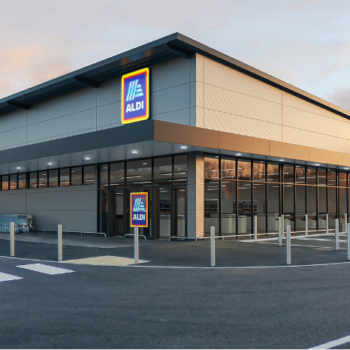Aldi Ireland becomes “carbon neutral” business

Aldi has announced its intention to become a carbon neutral business, by effectively cancelling out its emissions through investment in environmentally friendly projects around the world.
5 February 2019
Aldi Ireland, which has 137 stores and two distribution centres across Ireland, will offset the equivalent of over 20,000 tonnes of CO2 emissions this year, thanks to its own carbon reduction activity and supporting offset projects around the world.
Through the project, the business has already cut greenhouse gas emissions per m2 of sales floor by 58% since 2012.
John Curtin, group buying director, said the company is proud to now be a carbon neutral business in Ireland. “However,” he said, “this is only the start of our journey, as we will continually review our operations and look to reduce emissions wherever possible for many years to come.”
Since 2012, Aldi has introduced numerous initiatives to reduce its carbon footprint in Ireland, including increasing the purchase of 100% green electricity to 100, an ISO 50001 certified energy management system, and investing almost €4m in environmentally friendly refrigeration systems which will be installed across all new stores.
Aldi also recently signed the Business in the Community Ireland (BITCI) Low Carbon Pledge, committing to reducing its greenhouse gas emissions by at least 50% by the year 2030.
Aldi is supporting a range of green projects that will be delivered through ClimatePartner. This includes working to protect forests and wildlife and educate school children about conservation in Peru, as well as providing access to safe drinking water in India, reducing the need for families to boil water over an open fire. This will prevent smoke-related respiratory tract diseases and eye infections, as well as deforestation for firewood.
The supermarket’s investment will also replace polluting charcoal cookstoves with efficient alternatives in Ghana, as well as reducing use of fossil fuels by introducing biogas cooking equipment to Vietnam households.



 Print
Print




Fans 0
Followers